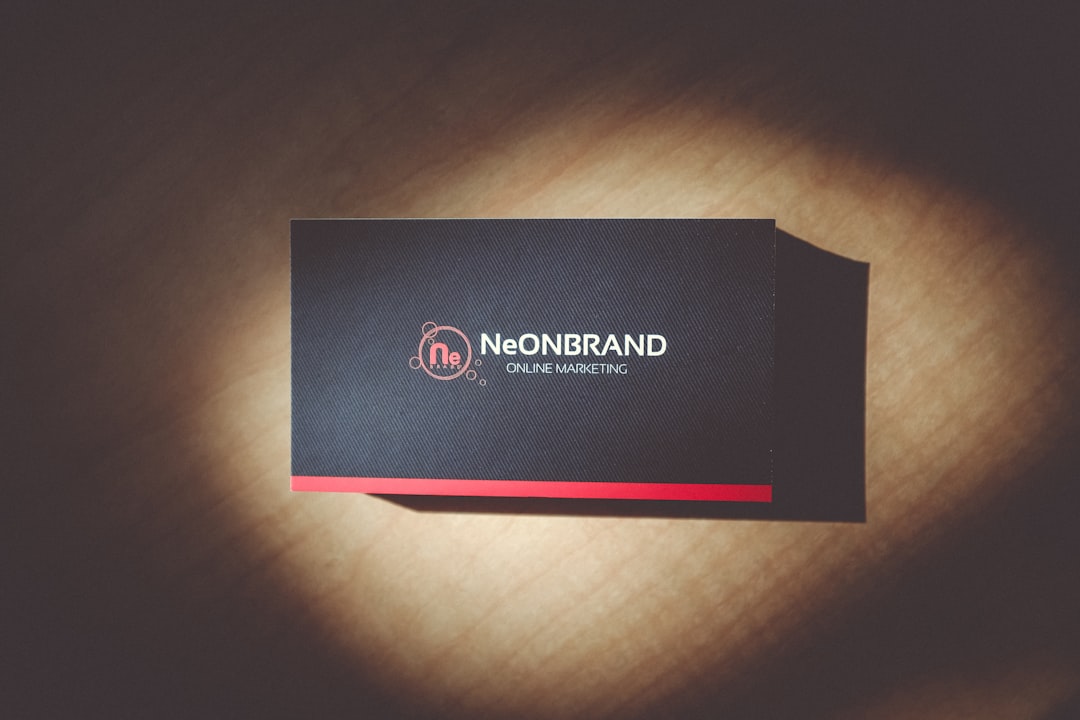Networking, in today’s fast-paced and interconnected world, has become an essential tool for personal and professional growth. Whether you are looking for a new job, increasing your business opportunities, or seeking to expand your knowledge and skills, networking can help you achieve your goals. It can provide access to information, knowledge, resources, and opportunities that you may not have otherwise had.
Networking is more than just exchanging business cards, attending events, or connecting on social media. It is about building meaningful relationships with people who share your interests, values, and aspirations. It is about cultivating authenticity, trust, and reciprocity. It is about giving and receiving support, feedback, and advice.
In this blog post, we will explore the different aspects of networking and provide practical tips and strategies to help you become a more effective networker. We will discuss how to cultivate authenticity, identify your goals, leverage social media, navigate networking events, maintain relationships, and more.
So, whether you are a seasoned networker or just starting, join us on this journey to discover the power of networking for personal and professional growth. Let’s get started!
Cultivating Authenticity: Building Meaningful Connections
Networking is not just about meeting new people and exchanging business cards. It’s about building authentic relationships that can bring value to both parties. Cultivating authenticity is a crucial step in networking because it helps you build meaningful connections that are based on trust, mutual respect, and shared interests.
To cultivate authenticity, you need to be genuine, open-minded, and curious. You should be willing to listen to others and share your own experiences and insights. Don’t be afraid to show vulnerability and admit your weaknesses. This can help you connect with others on a deeper level and build stronger relationships.
Another important aspect of cultivating authenticity is being mindful of your body language and communication style. Make eye contact, smile, and use active listening techniques to show that you are fully engaged in the conversation. Avoid interrupting others or dominating the conversation. Instead, ask open-ended questions and encourage others to share their thoughts and ideas.
Building meaningful connections also requires you to be proactive and intentional. Identify the people who share your interests and values and make an effort to connect with them on a regular basis. Attend industry events, join professional organizations, and participate in online communities to expand your network and meet new people.
Remember, networking is not a one-time event. It’s an ongoing process that requires patience, persistence, and dedication. By cultivating authenticity and building meaningful connections, you can create a powerful network that can help you achieve your personal and professional goals.
This can help you connect with others on a deeper level and build stronger relationships.
Identifying Your Goals: Defining Your Networking Strategy
Networking is not just about exchanging business cards or shaking hands with potential clients. It’s about building relationships that can help you achieve your goals. But before you start networking, it’s important to identify what those goals are. Are you looking for a new job? Do you want to expand your business? Are you seeking mentorship or guidance in your industry? Once you have identified your goals, you can create a networking strategy that will help you achieve them.
One of the first steps in defining your networking strategy is to determine your target audience. Who are the people that can help you achieve your goals? Do you need to connect with industry leaders, potential clients, or fellow professionals in your field? Once you have identified your target audience, you can focus your efforts on building relationships with those individuals.
Another important aspect of your networking strategy is to determine the types of events and activities that are most likely to help you achieve your goals. This might include attending conferences, joining industry associations, or participating in online networking groups. By participating in activities that are aligned with your goals, you can increase your chances of meeting the right people and building meaningful relationships.
It’s also important to remember that networking is a two-way street. It’s not just about what you can get from others, but also about what you can offer. What skills or expertise do you bring to the table? How can you help others achieve their goals? By approaching networking with a mindset of giving as well as receiving, you can create mutually beneficial relationships that can last for years to come.
Finally, it’s important to be patient and persistent when it comes to networking. Building relationships takes time and effort, and it’s not always easy. But by staying focused on your goals, identifying your target audience, participating in the right events and activities, and approaching networking with a giving mindset, you can create a networking strategy that will help you achieve success in your personal and professional life.
By approaching networking with a mindset of giving as well as receiving, you can create mutually beneficial relationships that can last for years to come.
Leveraging Social Media: Building Your Online Presence
In today’s digital age, social media has become an essential tool for networking. It’s a platform that allows you to connect with people from all over the world, and it’s an opportunity to showcase your skills, talents, and expertise. Building a strong online presence is crucial for establishing yourself as a thought leader in your industry and attracting potential clients, employers, or collaborators. Here are some tips on how to leverage social media to build your online presence:
1. Choose the right platforms: Not all social media platforms are created equal. Each platform has its own strengths and weaknesses, and it’s important to choose the ones that align with your goals and target audience. For example, LinkedIn is the go-to platform for professional networking, while Instagram is ideal for visual storytelling and building a personal brand.
2. Optimize your profiles: Your social media profiles should be consistent across all platforms, with the same profile picture, bio, and contact information. Use keywords and hashtags that are relevant to your industry and expertise to make it easier for people to find you. Make sure your profiles are complete, up-to-date, and professional.
3. Share valuable content: Social media is all about sharing, and the more valuable content you share, the more people will be interested in following you. Share articles, blog posts, videos, and other content that is relevant to your industry and showcases your expertise. Don’t be afraid to share your own content, too, such as blog posts, whitepapers, or case studies.
4. Engage with your audience: Social media is a two-way conversation, so make sure you’re engaging with your audience. Respond to comments and messages, ask questions, and participate in relevant groups and discussions. This will help you build relationships and establish yourself as an expert in your field.
5. Monitor your social media presence: Your online reputation is important, so it’s essential to monitor your social media presence for any negative comments or reviews. Respond to any negative comments in a professional and courteous manner, and try to resolve any issues as quickly as possible.
By leveraging social media, you can build a strong online presence that will help you connect with others in your industry, showcase your expertise, and attract potential clients or collaborators. Remember to be authentic and consistent in your messaging, and always strive to provide value to your audience.
For example, LinkedIn is the go-to platform for professional networking, while Instagram is ideal for visual storytelling and building a personal brand.
Making the Most of Events: Navigating Networking Opportunities
Attending events, whether they are industry conferences, trade shows, or local meetups, can be a valuable opportunity to expand your professional network. However, it can also be overwhelming and intimidating, especially if you are not a natural extrovert. With a strategic approach and a few key tactics, you can make the most of these events and build meaningful connections that can help you achieve your career goals.
First, it’s important to do your research and identify which events align with your interests and goals. Look for events that feature speakers, workshops, or panels that are relevant to your industry or area of expertise. This will increase the likelihood that you will meet like-minded professionals who share your interests and can offer valuable insights and advice.
Once you have identified the events you want to attend, make a plan for how you will approach networking. Set specific goals for yourself, such as meeting five new people or exchanging business cards with three potential collaborators. Having a clear objective will help you stay focused and make the most of your time at the event.
When you arrive at the event, take a deep breath and remind yourself that everyone else is there to network, too. Approach people with a friendly smile and a genuine interest in getting to know them. Ask open-ended questions that can help you learn more about their work and interests. Avoid the temptation to pitch yourself or your services right away; instead, focus on building a connection and finding common ground.
In addition to meeting people one-on-one, take advantage of any group activities or networking opportunities offered by the event organizers. Attend workshops or panels and participate in group discussions. These activities can be a great way to meet a variety of people and showcase your knowledge and expertise.
Finally, don’t forget to follow up with the people you meet after the event is over. Send a personalized email or LinkedIn message thanking them for their time and reminding them of the conversation you had. This can help solidify the connection and open the door for future collaboration or networking opportunities.
Remember, networking is a long-term game. It takes time and effort to build meaningful connections, but the rewards can be significant. By approaching events with a strategic mindset and a willingness to connect with others, you can expand your professional network and advance your career goals.
By approaching events with a strategic mindset and a willingness to connect with others, you can expand your professional network and advance your career goals.
The Follow-Up: Maintaining Relationships
Maintaining relationships is just as important as building them. After all, what good is networking if you don’t keep in touch with the people you’ve met? The follow-up is where you solidify your connections and keep the lines of communication open. Here are some tips for maintaining relationships:
1. Send a thank-you note/email: After meeting someone at an event or having a conversation with them, it’s always a good idea to follow up with a thank-you note or email. This shows that you appreciate their time and are interested in staying in touch.
2. Stay active on social media: Social media is a great way to stay connected with your network. Make sure to engage with your connections by liking, commenting, and sharing their posts. This will keep you top of mind and show that you’re invested in their success.
3. Schedule regular check-ins: Set a reminder to reach out to your connections every few months. This can be as simple as sending an email asking how they’re doing or inviting them to grab coffee or lunch. Regular check-ins show that you’re committed to maintaining the relationship.
4. Offer value: Don’t just reach out to your connections when you need something. Instead, look for ways to offer value. This could be anything from sharing an article you think they’ll find interesting to introducing them to someone in your network who could be a valuable connection for them.
Remember, networking is a two-way street. It’s important to give as much as you receive. By maintaining relationships and offering value, you’ll build a strong network that can help you achieve your personal and professional goals.
Regular check-ins show that you’re committed to maintaining the relationship.
Conclusion: The Power of Networking for Personal and Professional Growth
In today’s interconnected world, networking has become an essential tool for personal and professional growth. Building and maintaining relationships can help you expand your knowledge, find new opportunities, and achieve your goals. Whether you are just starting out in your career or looking to make a change, networking is a crucial skill that can help you succeed.
Throughout this blog post, we have explored the different aspects of networking, from cultivating authenticity to identifying your goals, leveraging social media, making the most of events, and following up with your contacts. By following these strategies, you can build a strong and effective network that will help you achieve your personal and professional objectives.
Networking is not just about collecting business cards or adding new contacts to your LinkedIn profile. It is about building meaningful connections with people who share your interests and goals, and who can help you grow and learn. It requires patience, resourcefulness, and a genuine interest in others. It is not something that happens overnight, but rather a continuous process that requires effort and dedication.
As you embark on your networking journey, remember to stay true to yourself and your values. Cultivate authenticity and be genuine in your interactions with others. Identify your goals and develop a networking strategy that aligns with them. Leverage social media to build your online presence and connect with others. Make the most of events and networking opportunities to expand your network and learn from others. And finally, follow up with your contacts and maintain your relationships over time.
In conclusion, networking is a powerful tool for personal and professional growth. By building and maintaining relationships with others, you can expand your knowledge, find new opportunities, and achieve your goals. We hope that this blog post has provided you with valuable insights and strategies for effective networking. Remember, networking is not a one-time event but rather a continuous process that requires effort and dedication. Start building your network today and see the benefits for yourself!





